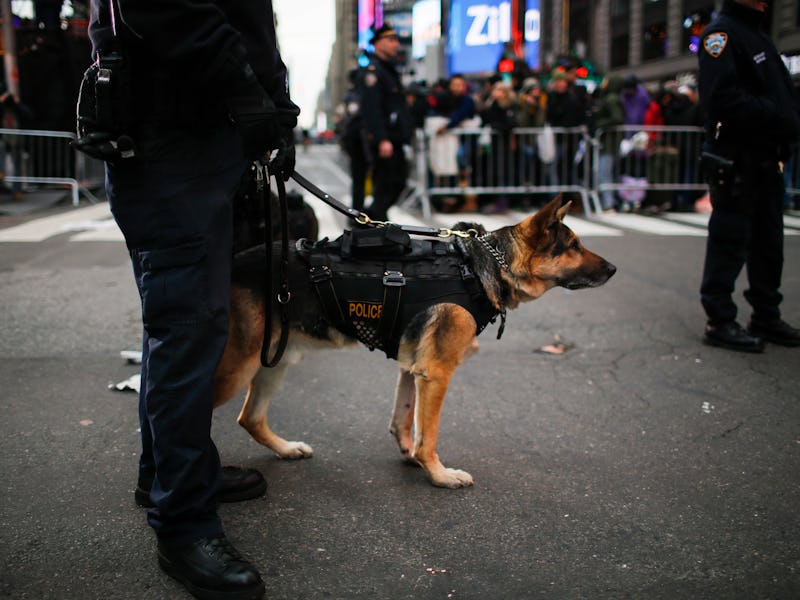Researchers Invent Device to Detect Brussels Bomb Chemical TATP
They want to get it on the market as soon as possible.

The deadly terror attacks in Paris last year and Saturday’s double bombing in Brussels, Belgium had one major chemical similarity: TATP.
Triacetone Triperoxide is a volatile chemical compound that can be made relatively easily (though not safely) out of common household chemicals. It’s hard to regulate, easy to obtain, and devastatingly powerful, but a team of researchers at the University of Rhode Island Center of Excellence in Explosives Detection, Mitigation, and Response has a new device to sniff it out before it goes off.
Police bomb-sniffing dogs can detect TATP, but, like humans, they get tired and require human handlers. Professor Otto Gregory, the device’s inventor, told CBS News that the device could function autonomously at normal security checks.
“It’s an electronic trace detection system that can do [sic] and compete with a dog, and doesn’t need a break. It detects 24/7.”
Gregory said he wants to get the device on the market “yesterday,” but hopes to start real-world testing later this year. The device can detect TATP in enclosed spaces, like airports or other transport hubs, in amounts as small as 1 part per billion. TATP detection strategies need to be very precise — just a few ounces of the compound are enough to blow up a car door, and Belgian police reportedly seized up to 33 pounds of the compound from terror suspects after the attacks.
The video below shows a little over a pound of TATP shredding a small tree — the bombs used in Brussels were likely vastly larger.
Authorities think the Brussels bombers wheeled in bombs (most likely made from TATP) in suitcases, which could hold dozens of pounds of the compound. Gregory says he eventually wants to get practical models of his device down to the size of a cell phone. A sensor that small could easily be mounted outside of security checkpoints to alert police of bomb threats well before they reached their target.